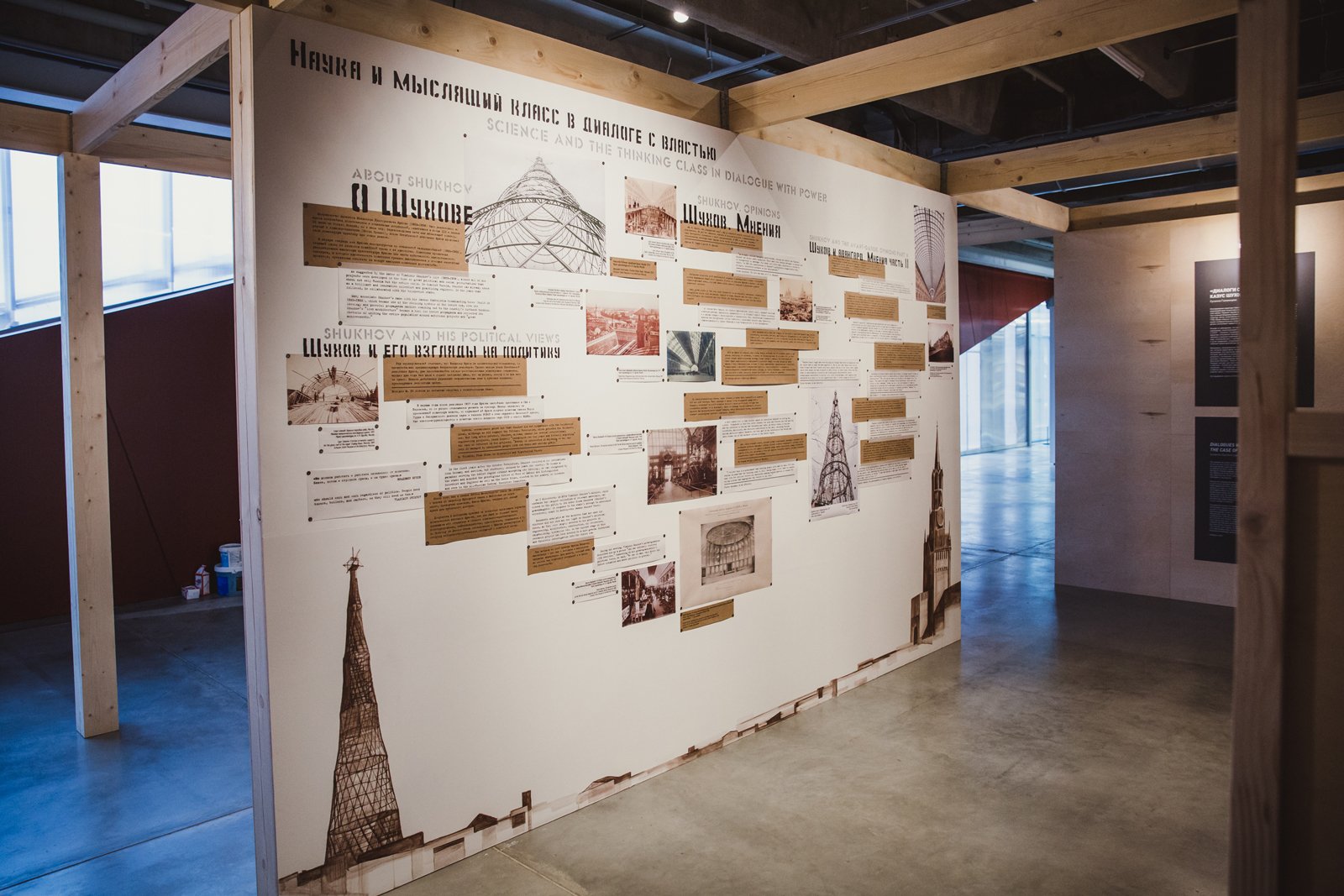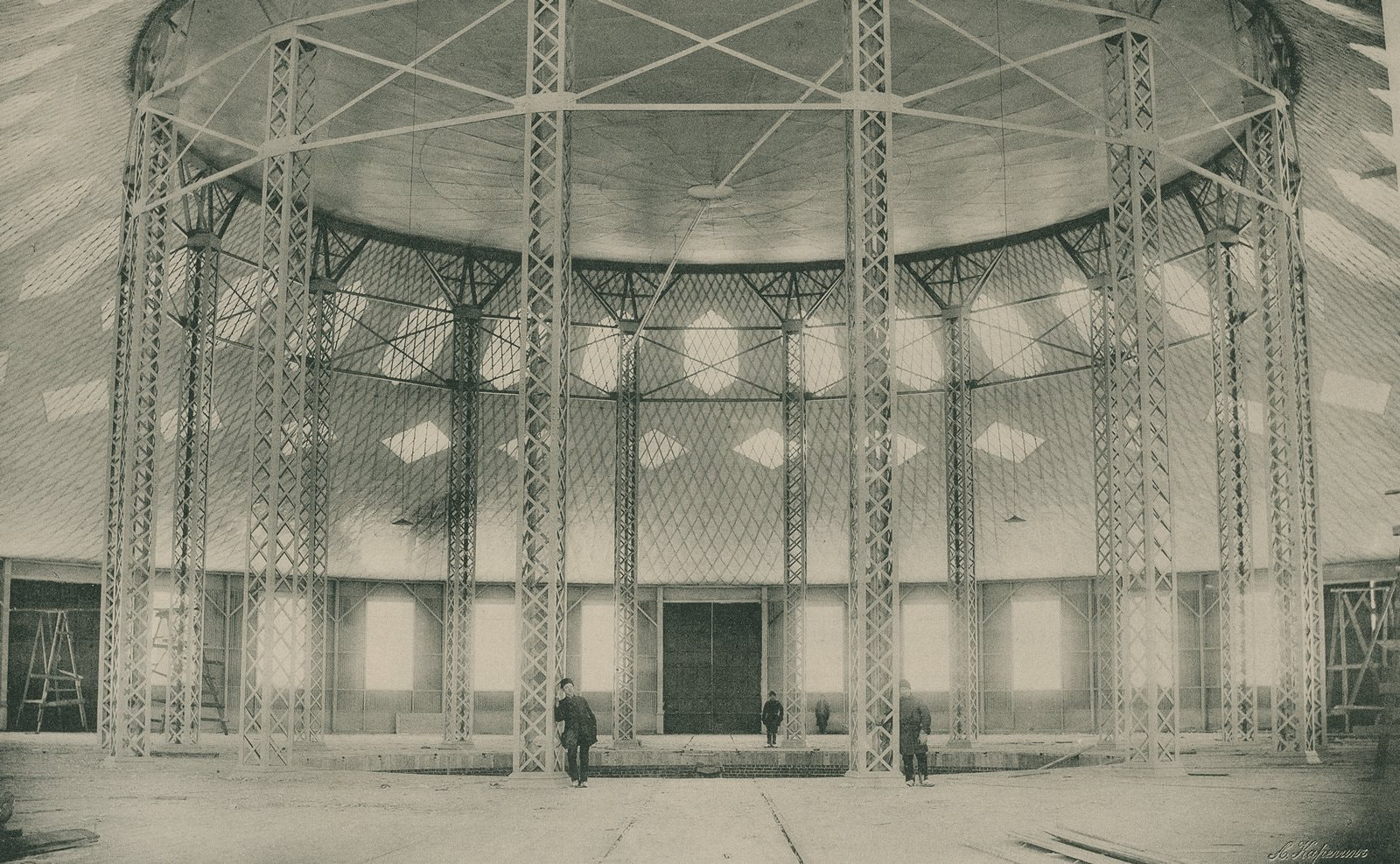Dialogue with Power. The Case of Shukhov
The research by curator and art critic Susanna Gyulamiryan is centered around questions of how contemporary art and—more broadly speaking—culture, relates to power, especially within the Soviet and post-Soviet (national) contexts.
In order to understand the Soviet legacy in more depth, which would be incomplete without an analysis of the social, political, and cultural aspects of both the Tsarist (Russian) Empire and the Soviet Imperial Hegemony, Gyulamiryan looks at the figure of Soviet engineer, architect, and scientist Vladimir Shukhov (1853–1939). Responsible for building one of the most iconic symbols of the Soviet era and an earlier instrument of Soviet propaganda—The Shabalovka Tower in Moscow—she uses him as a first case study and examines Shukhov’s method of blending different ideologies in his practice.
Choosing the format of a travelogue, Gyulamiryan presents her discoveries, personal experiences, and critical thoughts during the process of research using a mural designed by artist Alexey Shigalev. The mural is a compilation of the researcher’s personal journey and critical reflections, as well as thoughts of Shukhov and other researchers on power—historical quotes, excerpts from dialogues Gyulamiryan has recently had—creating an idiosyncratic visual map.

Along with the mural, videos of interviews with experts active in the contemporary cultural scene such as cultural critic Hrach Bayadyan, artist Dmitry Gutov, and art historian and curator Viktor Misiano are screened. The interviews are built around three main topics that each is asked to respond to. The topics help elucidate and clarify certain aspects of the Soviet Empire and post-Soviet conditions we are living in today: “The thinking class in dialogue with power,” “The Soviet avant-garde and the hegemony of the Empire,” and “Is the Post- in Post-colonial the Post- in Post-Soviet? (the name of this topic is borrowed from a journal article of David Chioni Moore “Is the Post- in Post-colonial the Post- in Post-Soviet? Toward a Global Postcolonial Critique”, PMLA, Vol. 116, No.1, Jan. 2001).
These interviews marked the second phase or second case study of the Gyulamirian’s research, but in terms of the importance of conceptual articulations, critical reflection they became the core issue of the whole research project Dialogue with Power.
